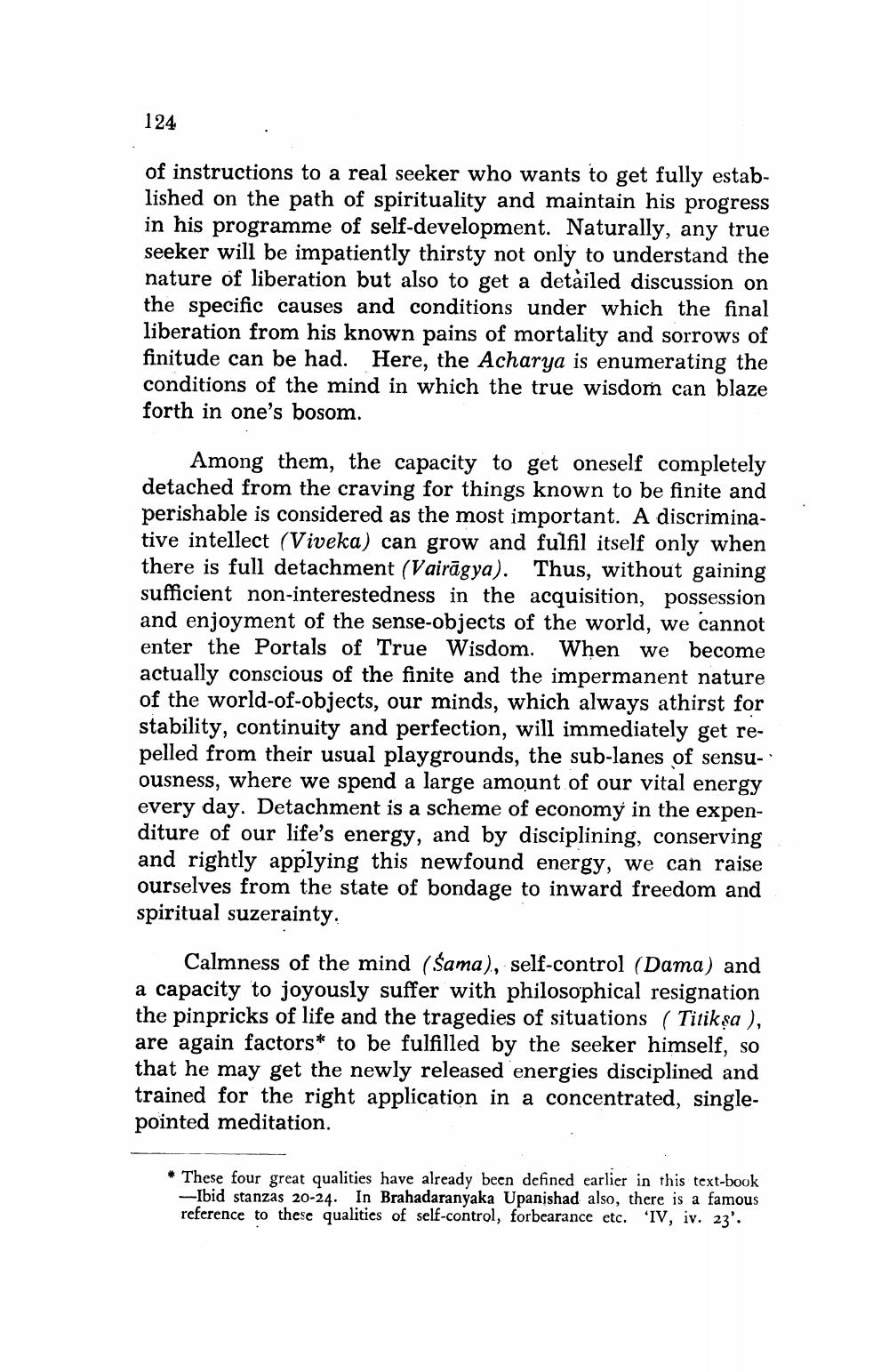________________
124
of instructions to a real seeker who wants to get fully established on the path of spirituality and maintain his progress in his programme of self-development. Naturally, any true seeker will be impatiently thirsty not only to understand the nature of liberation but also to get a detailed discussion on the specific causes and conditions under which the final liberation from his known pains of mortality and sorrows of finitude can be had. Here, the Acharya is enumerating the conditions of the mind in which the true wisdom can blaze forth in one's bosom.
Among them, the capacity to get oneself completely detached from the craving for things known to be finite and perishable is considered as the most important. A discriminative intellect (Viveka) can grow and fulfil itself only when there is full detachment (Vairāgya). Thus, without gaining sufficient non-interestedness in the acquisition, possession and enjoyment of the sense-objects of the world, we cannot enter the Portals of True Wisdom. When we become actually conscious of the finite and the impermanent nature of the world-of-objects, our minds, which always athirst for stability, continuity and perfection, will immediately get repelled from their usual playgrounds, the sub-lanes of sensuousness, where we spend a large amount of our vital energy every day. Detachment is a scheme of economy in the expenditure of our life's energy, and by disciplining, conserving and rightly applying this newfound energy, we can raise ourselves from the state of bondage to inward freedom and spiritual suzerainty.
Calmness of the mind (Šama), self-control (Dama) and a capacity to joyously suffer with philosophical resignation the pinpricks of life and the tragedies of situations (Titikșa ), are again factors* to be fulfilled by the seeker himself, so that he may get the newly released energies disciplined and trained for the right application in a concentrated, singlepointed meditation.
* These four great qualities have already been defined earlier in this text-book
-Ibid stanzas 20-24. In Brahadaranyaka Upanishad also, there is a famous reference to these qualities of self-control, forbearance etc. IV, iv. 23'.




